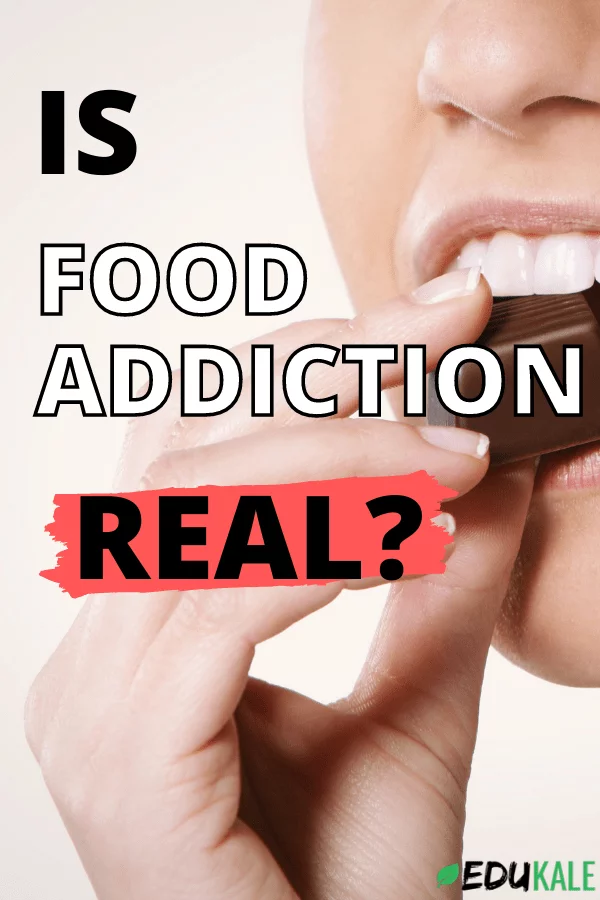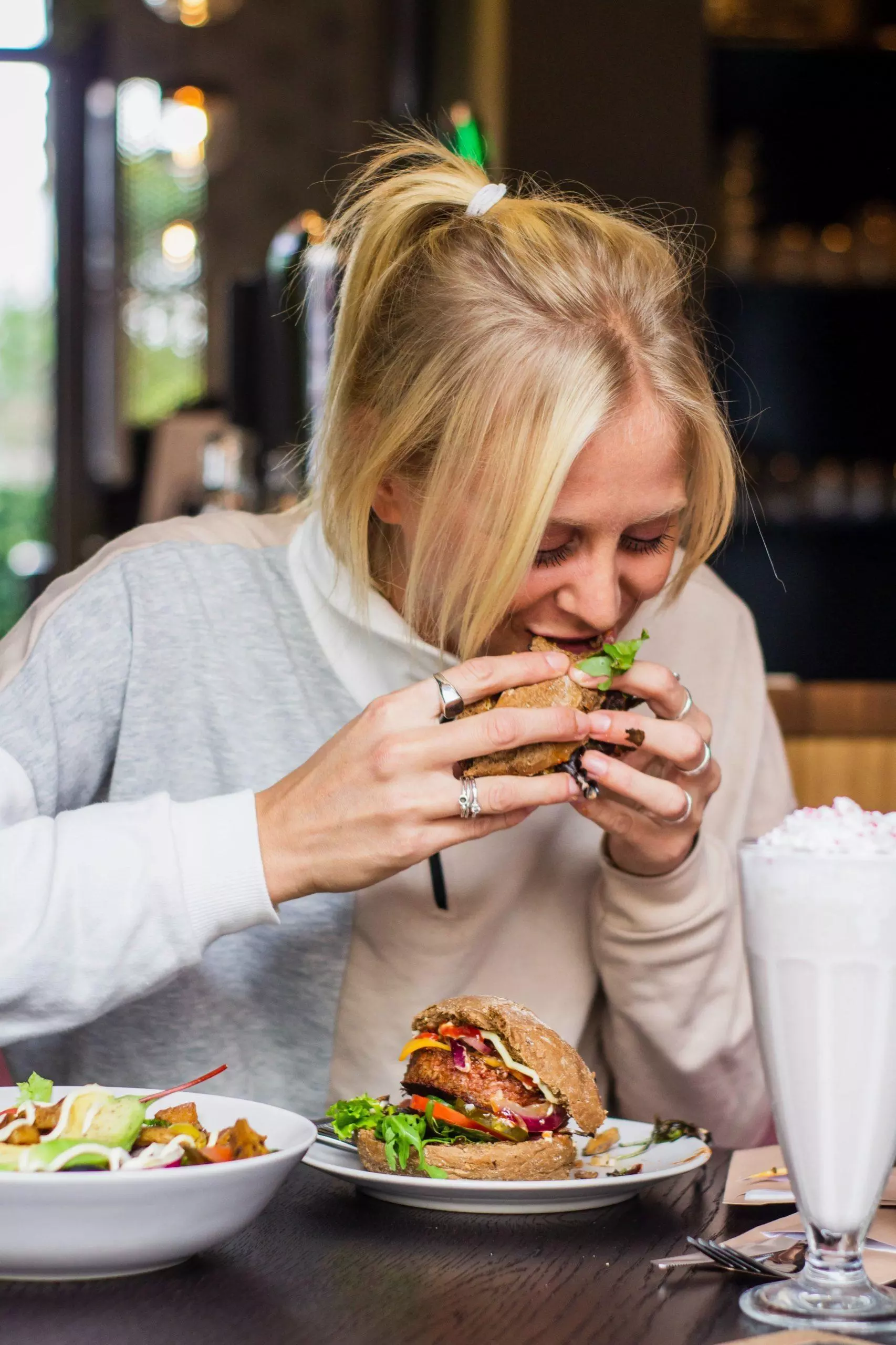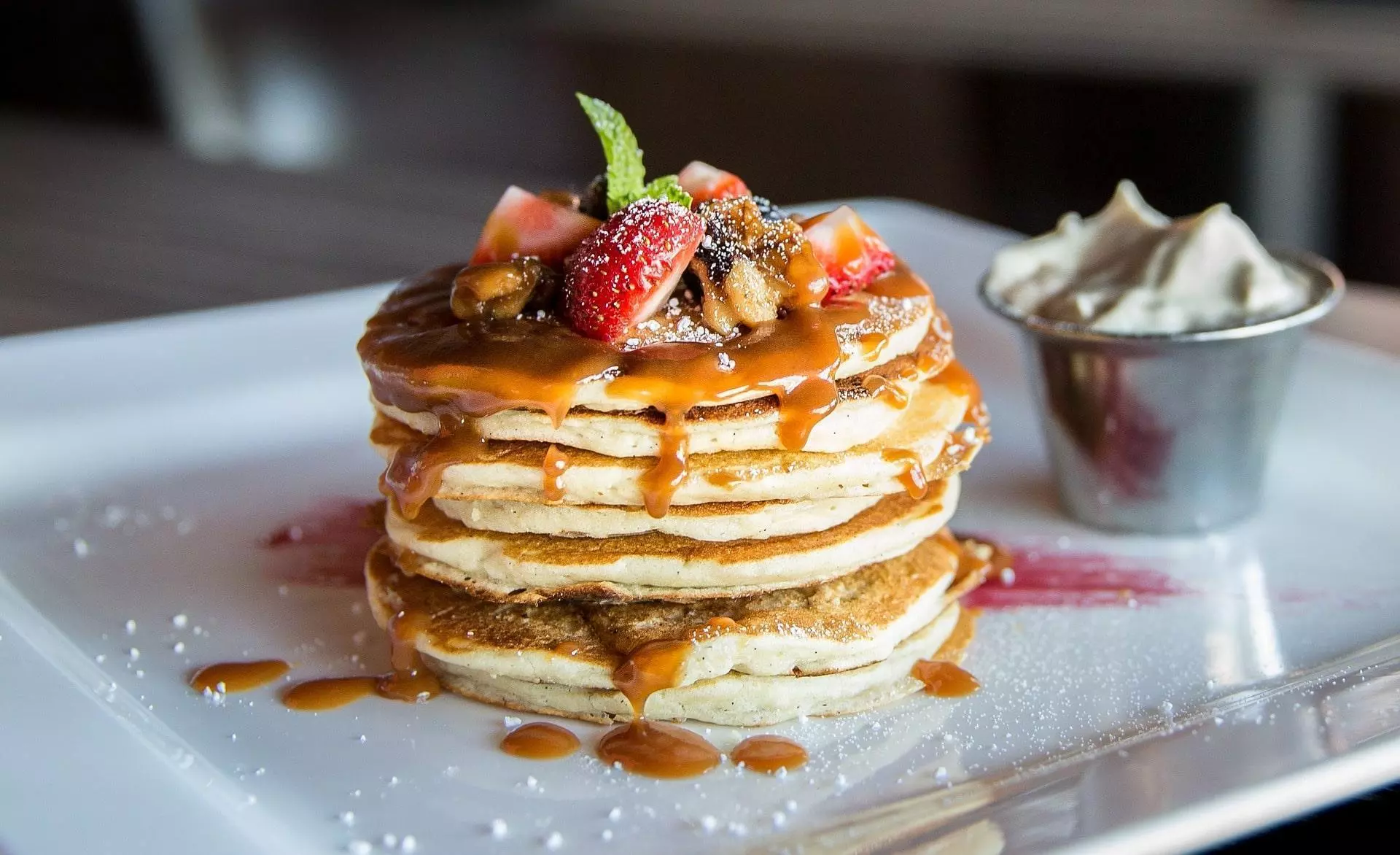This post contains affiliate links from which I may receive a small commission, at no extra cost to you. In no way does this affect my opinion or the information I provide on the product. Please read my disclaimer for more info.
“I’m so addicted to chocolate!”
“Sugar is like a drug to me!”
“The only drug I’m addicted to is food!”
Sounds familiar? A lot of people believe that food addiction is a thing, yet the science on the matter isn’t clear. Some say that sugar has the same effect on your brain as cocaine— but is it really true? And how can you get out of this terrible food addiction?

What is food addiction?
When people talk about having a food addiction, they are referring to a loss of control over their eating behaviors when presented with certain foods. Often, these are highly palatable, calorie-dense, low-nutrient foods.
Symptoms of food addiction may include craving these foods despite feeling full, binge-eating these foods (read this article for tips on how to stop binge-eating), feeling food guilt after having these foods (read this article for how to deal with food guilt), and being unable to stop all of this despite knowing its unhealthy outcome.
While there’s no denying that all of these behaviors are very real, are they really the result of food addiction?

Is food addiction real?
Whether or not food addiction is real has been the subject of debate in recent years.
Chocolate and sugar, for instance, have always been regarded as addictive foods.
This study [1], where rats preferred sugar water over cocaine, is often cited as a justification for food addiction. It’s important to emphasize that this study was done on rats: our brains aren’t similar enough to base our responses to sugar on theirs.
The study also used straight sugar (not something we usually consume) instead of sugary foods, so it is difficult to transpose. It remains interesting and raises a need for further research, however.
In addition, the components of addiction include both tolerance (needing more and more of the substance in order to experience the same effect) and withdrawal symptoms (unpleasant effects that happen when the substance is taken away [2]).
Neither of these has been shown with food items [3].
While some may believe that such a thing exists, the evidence for substance-based food addiction is poor. If we look specifically at sugar, no evidence supports sugar addiction in humans [4].
People aren’t addicted to sugar, but rather adopt addictive eating behaviors around highly palatable food. While I know a lot of people who would binge on cookies or ice-cream, I don’t know any who would wolf down spoonfuls of table sugar to satisfy a craving.
Ultimately, the concept of food addiction is flawed: food cannot be compared to drugs or any other addictive substance. Unlike drugs or alcohol, food is essential for survival.
The term “eating addiction” is therefore more suitable. It describes the behavioral addiction without including any “substance-based” addiction. While eating can certainly be addictive, food in itself is not [5].

How to overcome your eating addiction.
So we’ve established that substance-based food addictions aren’t a thing and that chocolate addiction isn’t real. But behavioral eating addictions can still very well exist. Here’s a few ways to overcome them.
First of all, analyze your cravings. Are they fueled by certain food restrictions? If they are, you need to let go of them and to give yourself permission to eat.
Now this may seem scary at first— surely if you’re allowed to eat anything you want then you’ll only eat junk food, right? Well, for a brief period, you might. If you’ve been banning certain foods from your plate for a long time and you’re suddenly allowed to have them, you’ll certainly binge on them at first.
However, while having ice-cream and chocolate dinners for the rest of your life might seem appealing now, it probably won’t after you’ve had it for a few nights in a row. If you want to know more about this, check out my article on how to end your obsession with food .
It’s also important to let go of the all-or-nothing mentality, which you can read more about here.
If you feel like you don’t restrict but are still addicted to eating, here are a few things to consider.
You could be restricting without even realizing it (excessively tracking calories, etc) or you could be thinking about restricting your food intake all the time but end up giving in.
If not, you’ve probably developed poor eating habits and are used to eating highly-processed, calorie-dense foods instead of healthy and balanced meals.
In this case it’s important to learn the basics about nutrition, its impact on health, and how to create healthy and balanced meals without feeding into diet culture. I have tons of articles and videos to help you with that— don’t hesitate to check them out!
The last thing you should be doing right now is going on a diet. It’s important to fuel your body correctly with whole nutritious foods. Make sure that you’re having healthy and balanced meals every day. If your body is getting the nutrients it needs, you’re less likely to feel these eating addiction urges.

While I suggest having no “off-limit” foods, for some people it may help to get rid of the “trigger foods” which cause your cravings or binges. If your pantry is filled with super tempting snacks, you’re bound to give in sooner or later. I recommend having mainly healthy foods on hand— you’re less likely to binge on celery and hummus than on chips or cookies!
Check out this article on how to prevent boredom eating for more tips.
Try out this food clear-out and see if it helps. If you feel like it only strengthens your addiction, stop and focus on the other steps instead.
Finally, don’t hesitate to seek the help of a nutrition professional if you need guidance along the way!
Food addiction in conclusion.
While many people may feel like they suffer from a chocolate addiction, the evidence for substance-based food addiction is poor. The term “eating addiction”, describing only the behavioral addiction, is a better fit.
In order to overcome eating addiction, it’s important to let go of restrictions and to learn how to make healthy nutrition choices. I have a ton of articles to help you along the way!
-Lucie


Comments are closed.